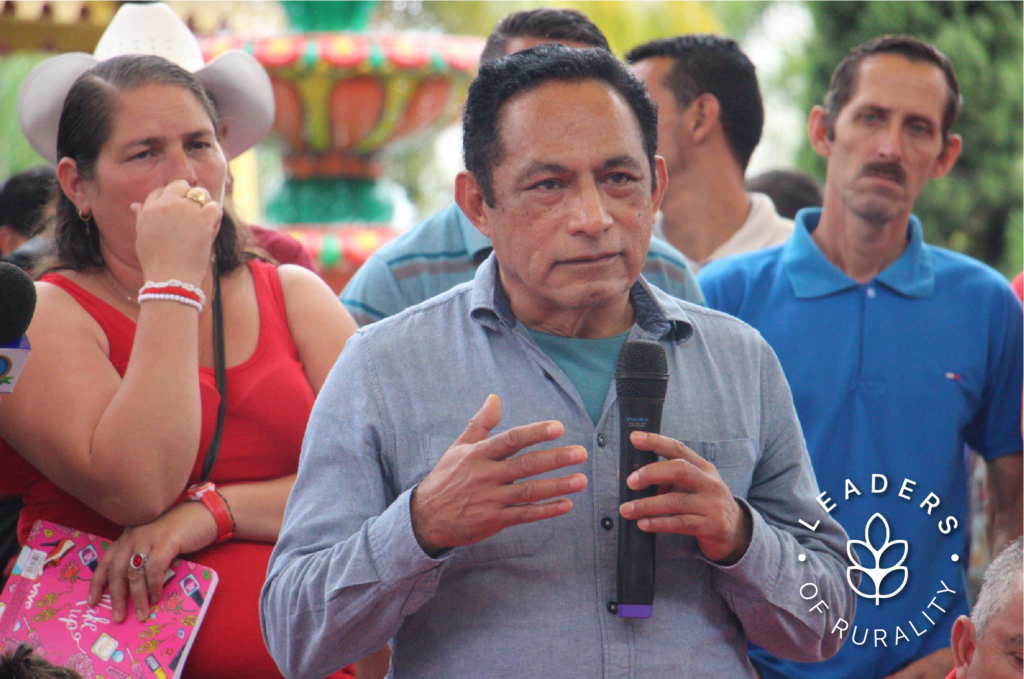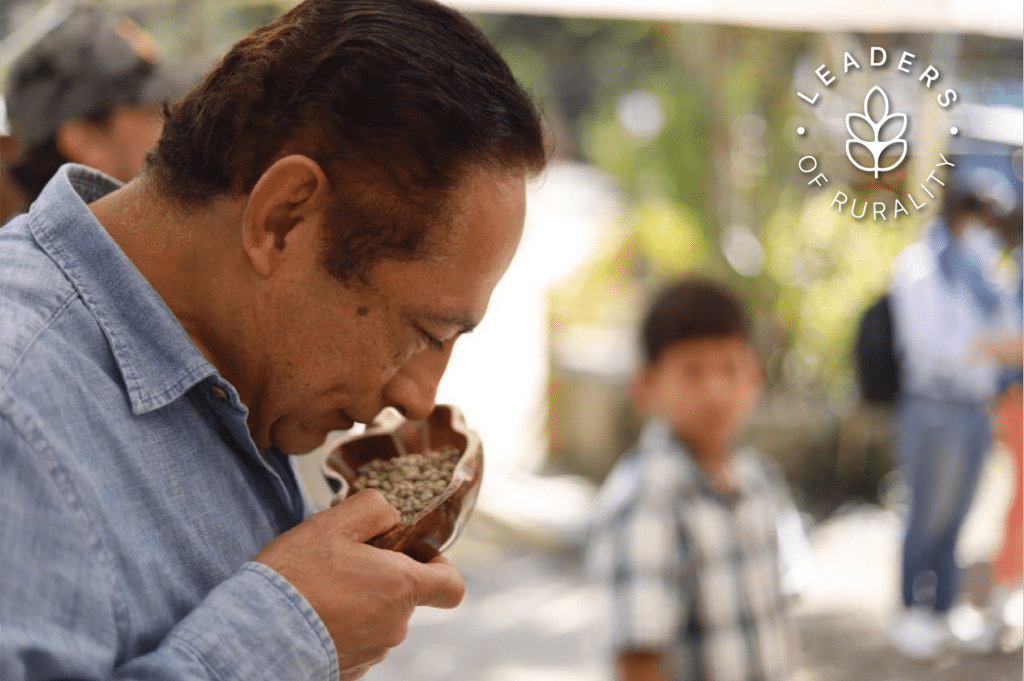
For his work, Suazo was recognized as one of the “Rural Leaders of the Americas” by the Inter-American Institute for Cooperation on Agriculture (IICA).
San Jose, Costa Rica, 16 May 2025 (IICA) – In the mid-1990s, having recently completed his Social Work degree in Tegucigalpa, Dagoberto Suazo was given the opportunity to continue his studies in the Netherlands. His time in Europe would be a transformative experience, revealing to him the need to create new export markets for Honduran coffee.
Dagoberto, who now heads a coffee growers cooperative, Central de Cooperativas Cafetaleras de Honduras, recalls that he returned to his Central American homeland with a clear-cut mission: to improve the standing of his country’s coffee; improve conditions for coffee farmers and access new markets.
The Inter-American Institute for Cooperation on Agriculture (IICA) has recognized Suazo as a “Leader of Rurality of the Americas” and will bestow him with the “Soul of Rurality” award in recognition of his efforts. This distinction was created by the international organization specializing in agricultural and rural development to celebrate men and women who are leaving the mark and making a difference in rural areas of the Americas.
This farmer and rural manager’s connection to coffee began in his earliest years. He was born in the department of Yoro in the Olanchito municipality. Although his family moved to Tegucigalpa when he was just two years old, “we did not sever our ties with the countryside. We would travel to our farm during vacations to survey our crops: corn, beans, vegetables and coffee”.
These ties were maintained during his time as a student in the capital. The continued close contact with family and his occasional stints working in the countryside, “fostered a special affection for the agriculture sector overall and for coffee, in particular”, Suazo assures us.
As such, even from then, he sought to introduce “professional practices to the countryside, by studying conditions in rural areas and how to improve the living conditions of farmers”.
An unexpected door opened when his classmate was offered a scholarship to study in the Netherlands. Dagoberto was able to secure the same opportunity, and they traveled to Europe together. There, Suazo intensified his agricultural studies at the prestigious Wageningen University.
“On returning home, we immediately became involved in coffee production” in Honduras. However, before doing so, a study tour allowed Suazo to see “how the consumption of first-class coffee was expanding” in Dutch businesses and in France, Germany and the Scandinavian countries, among others. “We saw this as an immense opportunity to use coffee to fuel the development” of Honduras.
However, reflecting on conditions in the previous century, Suazo explains that the challenge was to improve the productivity and quality of Honduran coffee. “We recognized this, while trying to understand the problems and to find solutions”, he notes. These efforts, he says, led to the establishment of the Central de Cooperativas in 1997 and its differentiated and organic coffee production”.

Dagoberto estimates that nearly 90 percent of coffee producers in Honduras are small entrepreneurs who generally have limited access to financing, a widespread problem in Latin America and the Caribbean.
Seeking a three-year grace period
Dagoberto estimates that close to ninety percent of coffee farmers in Honduras are small farmers, who generally have limited access to financing—an extensive problem throughout Latin America and the Caribbean.
He explains that at one point, some financial mechanisms were made available to small-scale coffee farmers, which were enough to at least allow them to renovate their farms and to introduce crop improvements. This also made it clear that the activity could drive the development of Honduras’ rural sector.
Given that farmers had a limited leadership role in much of the coffee industry, Suazo stresses that it is imperative that small farmers be equipped to expand their direct coffee exports.
Love for the land
In the meantime, other initiatives are building the sector and creating hope. Among them is the growth of the coffee tasters’ school, Escuela de Catadores de Café, which was established in 2002. The school has already trained more than three hundred technical officers to oversee quality control of the bean. Suazo notes that, “During the eighties, Honduras only had one coffee taster, whereas in the other countries of the region, each company employed its own coffee taster to evaluate the quality of different coffee beans”, which is a key activity in promoting the exportation of high-quality beans.
“We brought in a coffee taster from El Salvador, through a partnership with a local educational institution and that led to the establishment of the Escuela de Catadores, which has been a tremendous success”, he tells us proudly. “Nowadays there is no coffee cooperative, production facility or exporter in Honduras that does not employ at least one coffee taster”.
Another important initiative for the sector were “the extensive efforts to boost the consumption of good coffee in the country’, ensuring that high-quality coffee would not be reserved solely for consumers of Honduran coffee abroad, says Suazo. “Now, wherever you go—whether it’s San Pedro Sula, Tegucigalpa or departments in the west or east of the country, people are consuming top-quality coffee, unlike “days gone by, when that would not have been possible and when the product was of such low quality”.
The cooperative manager describes coffee production as a virtuous circle that could benefit the entire country. “Coffee must be the cornerstone of development” in Honduras, providing a testing ground of initiatives to improve the quality and drive the development of financial tools, which can then be “developed for other agricultural products”.
He emphasizes that, “We have the conditions to make these products the drivers of development” in our country, “whose main economic activity today is agriculture”.
Amidst these efforts and achievements and despite the challenges, Dagoberto notes “the sense of affection that the coffee sector inspires”. This tradition “makes it very difficult for a coffee producing family to leave the sector”. “Some family members “may abandon the activity, but there will always be some who will continue” to cultivate this marvelous crop”.
“There is an affection, a love, something intrinsic to coffee farmers that stops them from leaving coffee production. Production may decrease but they press on. We all want to continue farming coffee”, says Suazo.
More information:
Institutional Communication Division.
comunicacion.institucional@iica.int











